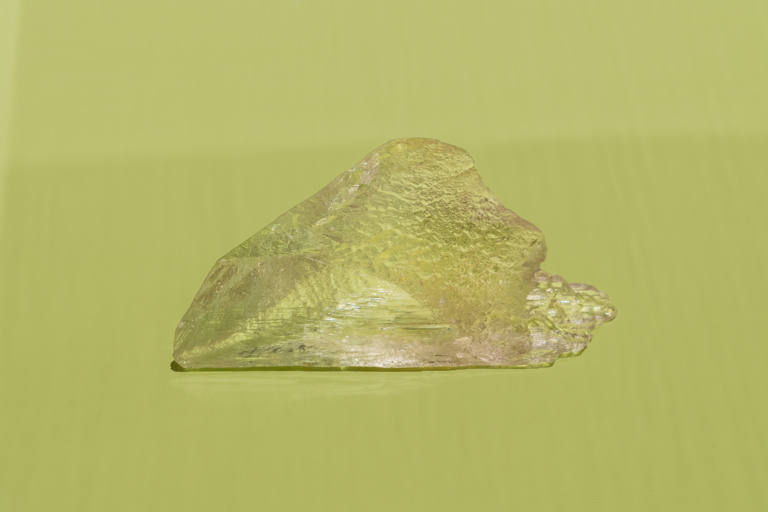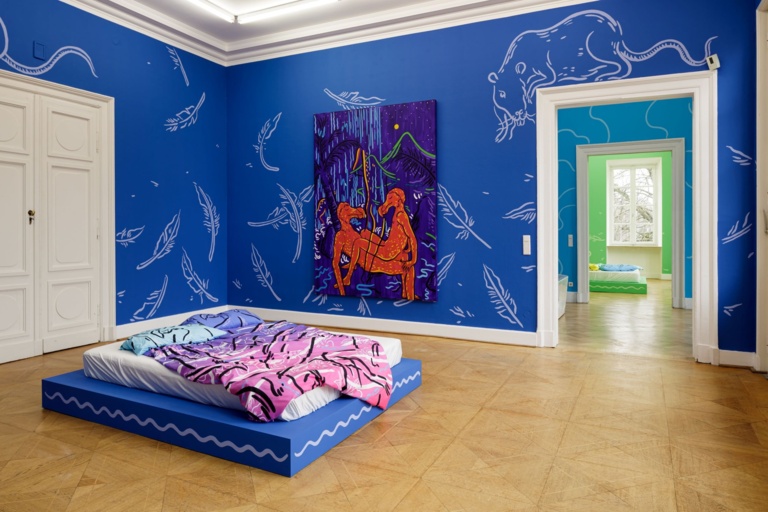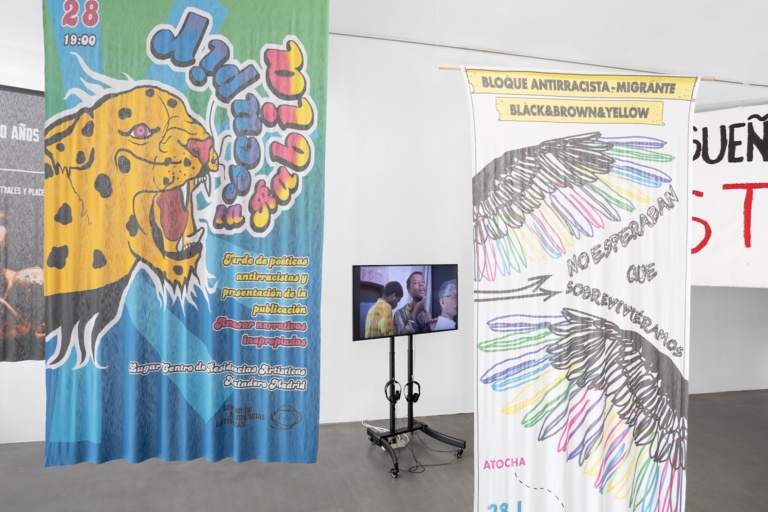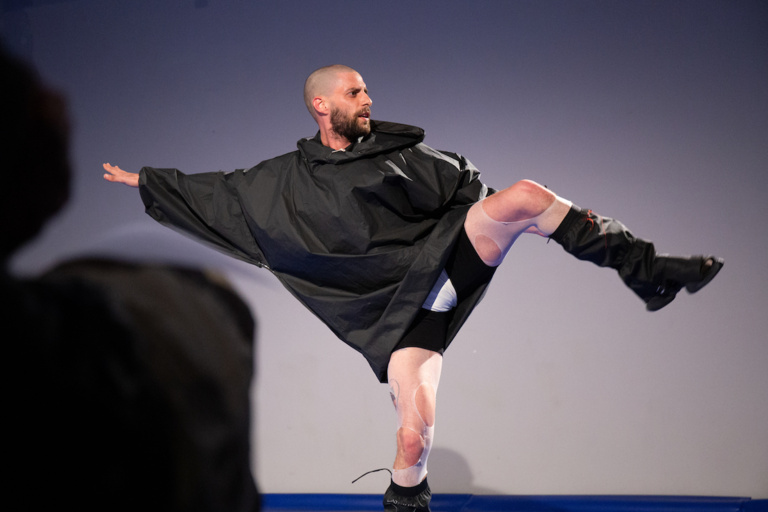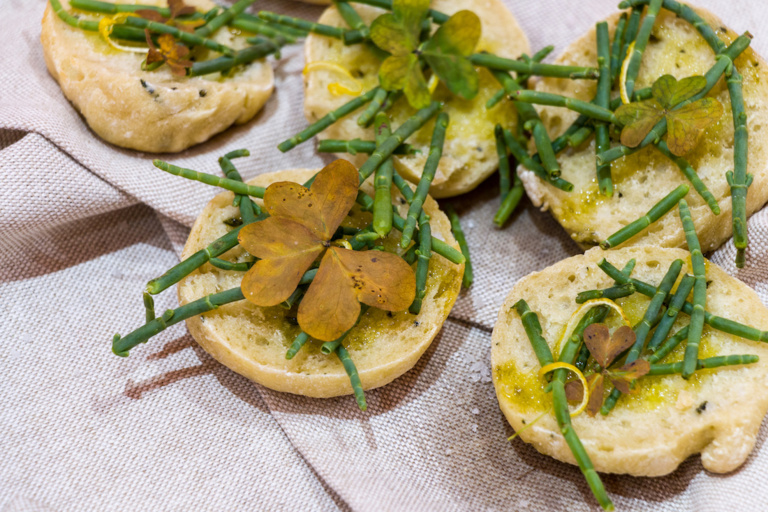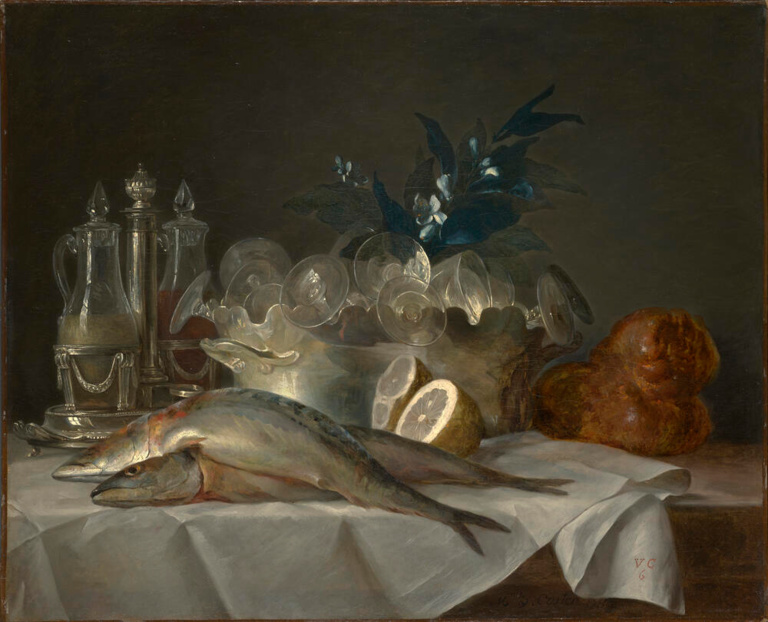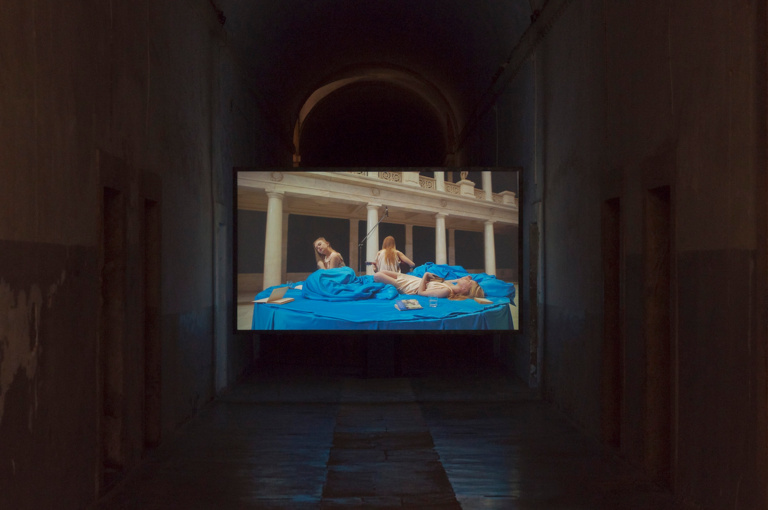Ragnar Kjartansson, Não sofra mais (2023). Anozero: Bienal de Coimbra. Mosteiro de Santa Clara-a-Nova. Cortesia do artista e Anozero.
Review — by Maria Kruglyak
Withstanding the compulsive capitalist dream of unlimited expansion, Compulsive Desires: On Lithium Extraction and Rebellious Mountains fosters intersectional alliances across disciplines in the face of climate emergency. Curated by Marina Otero Verzier for Galeria Municipal do Porto, the exhibition balances research, documentary and community works by drawing on global collective resistance to lithium mining and its contested use as palliative medication.
Interview — by Cristina Sanchez-Kozyreva
On the occasion of his solo exhibition at Kunstverein Braunschweig, Luís Lázaro Matos talks to Cristina Sanchez-Kozyreva about the luxury trip to Mauritius that preceded it all, and how Hotel Dodo is part of a colourful—in more senses than one—artistic practice that celebrates queerness and sex, associates happiness with the animal world, and transforms a historical German institution into a tropical resort.
Review — by Maria Kruglyak
"Emancipation of the Living" presents an intersectional, critical discourse of empowerment and active resistance to injustice, violation and displacement of the human and the non-human. It is the first exhibition curated by Museum for the Displaced (Mf D), who have spent the past three years developing an alternative curatorial methodology by holding artist programs and residencies that give space for care and slowness, unlearning result-focused institutional frameworks and production demands, and choosing instead to support and use art to build inclusive futures
Review — by Maria Kruglyak
The 25th of April is a day to celebrate and commemorate, but also to protest and re-remember. As the date marking the end of Estado Novo 49 years ago,[1] it is imbued with a complexity of history-present-future understandings—something that the three-day multidisciplinary art festival “Futuros da Liberdade,” organised for the occasion by Rua das Gaivotas 6 and Supermala, tackled with gusto by connecting the memory of 1974 with the ambivalent future and reality of today. Bringing together food, music, installation and performance art, “Futuros da Liberdade” created an arc of celebratory experiences that speak directly to community festivities, not forgetting subtle criticisms that an honest 25th of April celebration necessarily has to engage with.
Interview — by Maria Kruglyak
A Salt Anthology: An interview with Kevin Bellò. Exploring stories of salt through a perspective of care and slowness, A Salt Anthology was the winning project of the Jovens Curadorxs Open Call organised by Rua das Gaivotas 6 and Associação Quinta das Relvas. Curated by Kevin Bellò and featuring artists Inês Coelho da Silva and Joana Viveiros, the project was based on a residency at Associação Quinta das Relvas, during which the trio explored salt production at the Salinas de Aveiro and do Samouco.
Essay — by Eduarda Neves
Há alguns meses que não te escrevo, querido amigo. Uma estadia em Paris atrasou a nossa habitual troca de correspondência. Encontro-me a dois passos do 35, Boulevard des Capucines. Constato que o edifício no qual Nadar abriu a porta do seu estúdio a mais de uma centena de artistas independentes é, actualmente, administrado por um grupo económico que anuncia operar em contexto que promova uma inclusiva, fluída, maior e simples área urbana. Recordo o Salon de 1863 e noto que à minha volta, no campo da arte, os Refusés aspiram cada vez mais à arte do goût officiel, apesar da intensa mobilização social dos franceses contra a reforma das pensões. Os manifestantes, incluindo os jovens, não se deixam persuadir pelos argumentos governamentais. A avant-garde, tornada démodé, projecta-se na forma da oposição cívica.
Review — by Susana Ventura
Two introductory notes of an empirical nature based on my experience when visiting the exhibition. The first note highlights the significant number of visitors eagerly exploring the exhibition at the Monastery of Santa Clara-a-Nova. I believe this is largely owed to the effect produced by this particular exhibition, which compels us to resist leaving (which leads to the second note). I couldn’t help but think: when was the last time I felt this desire not to depart from an exhibition, and to revisit its various rooms purely for pleasure (an increasingly rare experience in contemporary art exhibitions)? Icelandic artist Ragnar Kjartansson's exhibition não sofra mais [suffer no more] will eventually unveil the secrets behind this effect. However, I also believe (especially regarding the first note) that the persistent efforts of CAPC — Círculo de Artes Plásticas de Coimbra has successfully engaged and solidified an audience around the visual arts program of Anozero — Bienal de Coimbra.

